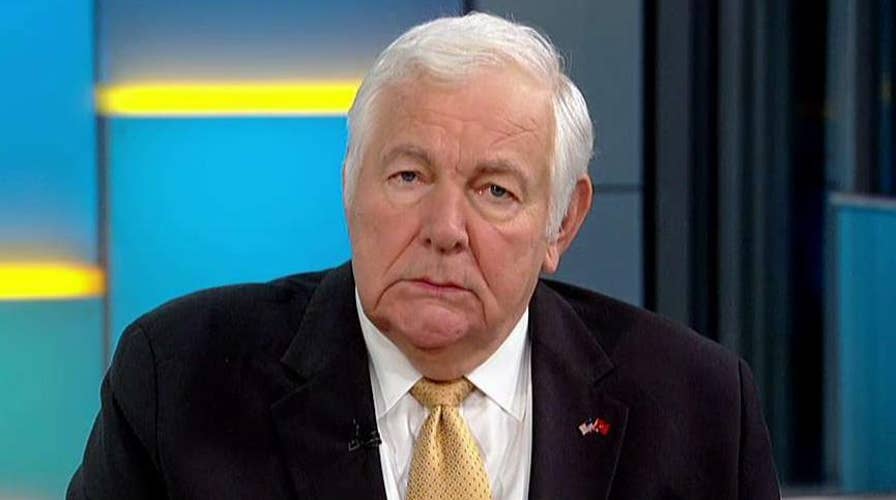Bill Bennett talks Brexit deal, 'vitriol' on Capitol Hill, new book
Former education secretary and Fox News contributor Dr. Bill Bennett offers his take on the new Brexit draft deal, Democrats taking on President Trump and his new book on the 'greatest political story ever told.'
We Americans are on the verge of some important anniversaries – and not just the centennial of the Roaring Twenties. Next year we mark the 400th anniversary of the landing of the Pilgrims. In 2021, it’s the 400th anniversary of the first Thanksgiving.
We’re four years away from the 250th anniversary of the Boston Tea Party. A little more than five years away from the 250th anniversary of those first shots heard ’round the world at Lexington and Concord. And about six years away from the 150th anniversary of the Declaration of Independence.
Those of us around in 1976 remember the Bicentennial of the Declaration. It was a grand celebration of parades, flags, fireworks and tall ships. Given the mood of the country today, we have to wonder: What kind of celebrations are we now headed for?
We got a good hint from The New York Times this year with the publication of its 1619 Project, which aims to “reframe U.S. history by marking the year when the first enslaved Africans arrived on Virginia soil as our nation’s foundational date.” It is full of assertions such as “a re-education is necessary” and “if you want to understand the brutality of American capitalism, you have to start on the plantation.”
More from Opinion
The 1619 Project has a school curriculum which, in the hands of good teachers, can make for some thought-provoking lessons. But in the end, it distorts the nation’s history by focusing almost exclusively on its sins.
American history is the story of a great people who time and again have managed to save themselves and others, to correct wrongs, and to preserve what is still the world’s last best hope.
For decades now, this has been a problem with many textbooks and social studies lessons. They tend to highlight the bad – obsessing on blemishes, failings, and atrocities – and go light on the good. The goal, it seems, is to teach that there is nothing exceptional about our country. In fact, the message is that American turns out to be a pretty lousy place.
So it’s not hard to imagine comments from elites in the media and academia during the coming anniversaries. The Boston Tea Party patriots who disguised themselves as Mohawk Indians were appropriating a culture they ravaged. The authors of the Declaration of Independence were rich white men who were greedy for their own liberty but intent on oppressing everyone else.
Here’s an old-fashioned but much-needed proposal: Let’s not be shy about actually celebrating this country’s history and its greatness. Yes, study and understand the times we’ve failed, sometimes badly. But enough of this running down the country again and again. It’s tearing us apart.
CLICK HERE TO SIGN UP FOR OUR OPINION NEWSLETTER
How about if, in teaching American history, we start with President Abraham Lincoln’s great assertion that this country is the “last best hope of Earth”?
How about if we explain that ours was the first nation in history created out of the belief that people should govern themselves? That twice in the 20th century, the U.S. led the way in saving the world from tyranny – first from the Axis powers, then from Soviet totalitarianism? That over the decades, American capitalism has lifted millions from poverty?
How about helping students understand that in those times when we fell short of our ideals – such as when we failed to eliminate slavery at the nation’s founding – Americans of all backgrounds and races worked hard to prod our consciences and make us live up to those ideals, however belatedly?
CLICK HERE TO GET THE FOX NEWS APP
Yes, teach about the history of racism and oppression. But that is not the beginning or the center of the American story. To try to make it so is dishonest and an injustice to our students.
American history is the story of a great people who time and again have managed to save themselves and others, to correct wrongs, and to preserve what is still the world’s last best hope. It is one of the most magnificent stories since the dawn of civilization. Let’s take pride and celebrate it together as we observe some momentous anniversaries in 2020, 2026 and beyond.









































